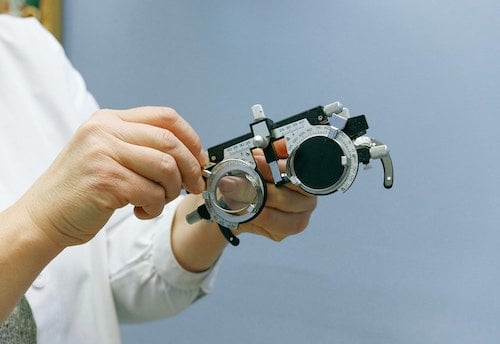6 Jokes in Spanish and What You Can Learn from Them
Humour is often said to be the best medicine, and this is especially true when learning a new language. Laughter can help you relax, bond with others and most importantly, learn faster.
That’s right, studies have shown that people who laugh while learning a new skill, such as a second language, actually learn better than those who don’t.
So if you’re looking for a way to boost your Spanish learning, why not start with some Spanish jokes?
Not only will you get a good laugh, but you’ll also pick up some new vocabulary and grammar along the way.
Here are 6 Spanish jokes that carry some very interesting language lessons with them:
1. Criminal coffee
—¿Cuál es el café más peligroso del mundo?
—El ex-preso
“What is the world’s most dangerous coffee?”
“Espresso.”
If you’re already laughing, congratulations —It means you’ve been paying attention to your Spanish lessons!
If you’re still scratching your head, don’t worry. Here is a breakdown of the joke:
In Spanish, the prefix ‘ex’ has the same meaning as its English counterpart: previous or former. (for example, ex-boyfriend: ex novio, ex-president: ex presidente).

As regards the word ‘preso’, it can mean ‘prisoner’ or ‘imprisoned’. The term ‘expreso’, then, is phonetically identical to ‘ex preso’, i.e., an ex-prisoner.
Can you see why it would be the most dangerous type of coffee?
2. Troublesome pasta
—Mamá, mamá, los fideos se están pegando.
—Déjalos que se maten
“Mom, mom, the noodles are sticking together”
“Let them kill each other, then”.
No, this curious exchange about noodles is not one of those absurd jokes where the punchline makes no sense. You just need to have made your Spanish homework to make sense of it!
In Spanish, the word ‘pegar’ can have two meanings. Depending on the context, it can either mean ‘to stick’ (¿Puedo pegar un anuncio?, “Can I stick a sign here?”) or ‘to physically hit someone” (Nunca le pegues a un perro, “Never hit a dog!”)
So, while the child in the joke says that the noodles are sticking together (los fideos se están pegando), the mother jokingly assumes her child is talking about the second meaning of the same word: to fight!
3. Colorful names
—Hola, ¿Blanca?
—No, soy Rosa.
—Ah, perdón, es que soy daltónico.
“Hi… Blanca?”
“No, I’m Rosa”
“Sorry, I’m colourblind”.
In English, names such as Amber or Scarlett are quite rare. But in Spanish, it’s not uncommon at all to find people whose names refer to colours. Some of the most popular names are Violeta (violet), Celeste (light blue), Rosa (pink) and Blanca (white).
In this joke, a man confuses two different women “because he is colourblind”. Unable to remember what colour the woman is named after, he mistakes Rosa for Blanca! Wouldn’t it happen to you as well?
4. An important call
“Tengo tres llamadas perdidas de mi oftalmólogo. El de ver me llama”.
“I have three missing calls from my ophthalmologist. Duty calls.”
Another head-scratcher for beginner learners, this joke actually hides a very clever pun.

The first thing you need to know is that both English and Spanish have a phrase to talk about visits or things to be done for reasons of obligation rather than personal interest: el deber llama / duty calls. However, in Spanish the word “deber” (duty, obligation) sounds exactly like the words de ver (to see, related to one’s eyesight).
As a result, the phrase el deber me llama sounds exactly like el de ver me llama, which can be translated as “the eye doctor is calling me”!
5. A true technophile
—Eres un fanático de la informática, ¿cierto?
—Bueno… mouse o menos.
“You’re a technology nerd, aren’t you?”
“Well, more or less”.
In English, the punchline of this Spanish joke is definitely anticlimatic. But if you pay attention to the words used, you’ll see why it’s funny in Spanish.
If you look closely, you’ll notice that the protagonist responds “mouse o menos” instead of “más o menos” (more or less).
While this might seem like a simple mistake, it’s a conscious phrasing that actually makes the joke: The person answering the question is such a computer nerd that he mistakes the word “más” for “mouse” which refers to the small device we use to navigate on a computer.
That’s how much he thinks about computers!
6. An obedient user
—Mama, ¿qué haces en frente de la computadora con los ojos cerrados?
—Nada, hijo, es que Windows me dijo que cierre las pestañas.
“Mom, what are you doing in front of the computer with your eyes closed?”
“Nothing, son. It’s just that Windows told me to close my tabs.”
Are you up for another technology-related joke?
This exchange is a clever play on words that, again, only works in Spanish. The joke is based on the fact that the word ‘pestañas’ can have two meanings depending on the context.

If you are talking about the Internet, it means “tab”. However, its most common meaning is “eyelashes” or “eyelids”.
In this joke, the boy’s mom is sitting in front of the computer with her eyes closed because she misinterpreted the computer operating system’s instructions and thought it was telling her to close her eyelids. An understandable mistake, if you ask me!
As you may be able to tell from these jokes, Spanish is a beautiful and expressive language that can be quite difficult to master. However, once you get the hang of it, you’ll be able to understand and appreciate Spanish humour, which often relies on playing with the ambiguity of certain terms and the phonetic similarities between different words.
So don’t be discouraged if you don’t get all the jokes at first. Just keep practicing your Spanish and, eventually, you’ll be able to enjoy them just as much as native speakers do!
Would you like to take a tailored Spanish course in which fun and enjoyment are guaranteed? Come to Language Trainers and we’ll make sure every lesson is tailored to your needs and interests! We offer private Spanish lessons taught by native teachers all around the world, both in-person and online. Contact us today to get started!
